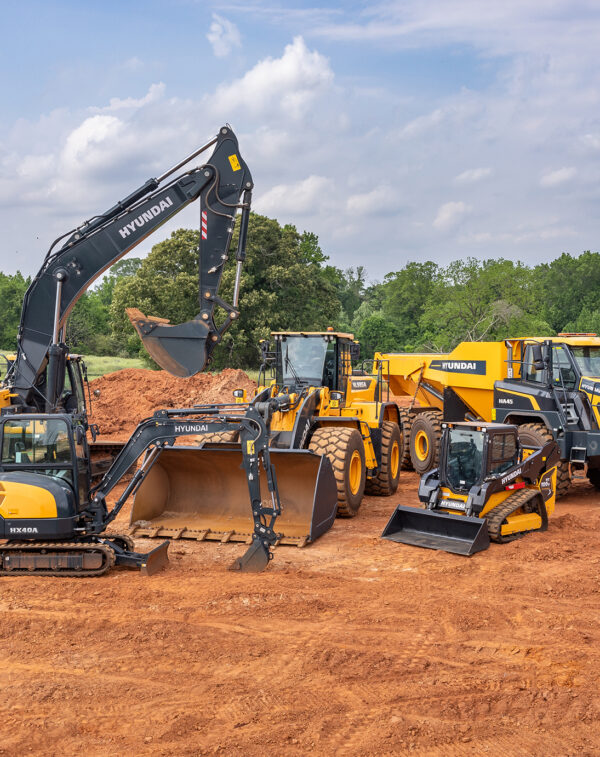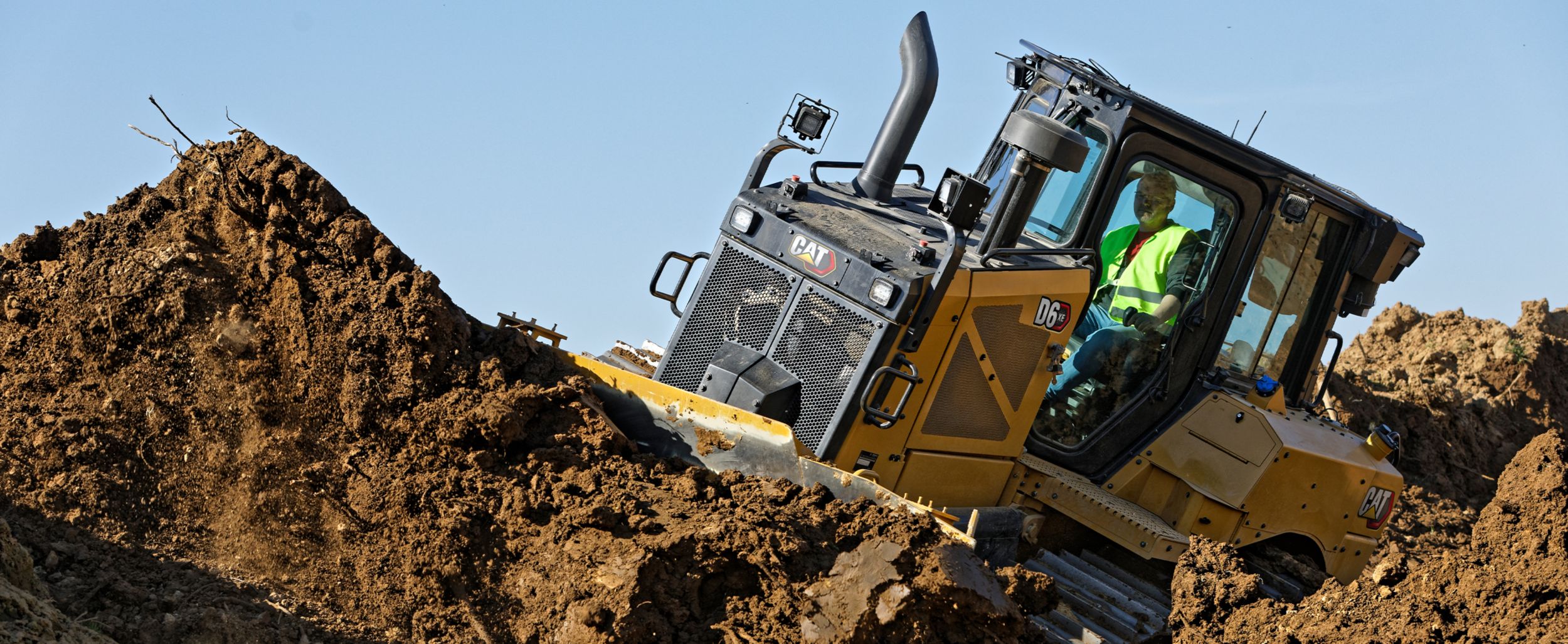Exploring the Financial Advantages of Renting Building And Construction Devices Compared to Having It Long-Term
The choice between having and leasing building devices is critical for monetary management in the sector. Renting deals instant expense savings and operational adaptability, permitting business to assign resources extra successfully. On the other hand, possession comes with substantial lasting economic commitments, including maintenance and depreciation. As contractors weigh these options, the impact on capital, task timelines, and modern technology gain access to becomes progressively considerable. Understanding these subtleties is essential, specifically when thinking about just how they align with details job needs and financial methods. What aspects should be focused on to make sure optimal decision-making in this facility landscape?

Expense Comparison: Renting Out Vs. Having
When evaluating the economic implications of possessing versus leasing building and construction devices, an extensive cost contrast is important for making informed decisions. The choice between owning and renting out can significantly influence a business's profits, and recognizing the linked expenses is essential.
Renting out building tools generally entails lower upfront prices, enabling organizations to allot resources to other operational requirements. Rental agreements often consist of versatile terms, enabling companies to access progressed equipment without lasting commitments. This versatility can be particularly useful for short-term projects or changing workloads. Nonetheless, rental prices can gather over time, potentially going beyond the expense of possession if equipment is needed for an extensive duration.
On the other hand, owning building and construction tools requires a substantial preliminary investment, in addition to recurring expenses such as devaluation, insurance, and funding. While possession can lead to long-lasting savings, it likewise locks up resources and might not supply the exact same level of flexibility as leasing. Additionally, possessing tools demands a commitment to its usage, which may not constantly align with project demands.
Inevitably, the choice to possess or rent out should be based upon a comprehensive evaluation of certain job needs, monetary ability, and lasting strategic goals.

Maintenance Expenses and Obligations
The selection between having and renting building tools not just involves financial considerations but also incorporates continuous upkeep expenditures and duties. Owning devices calls for a considerable commitment to its upkeep, which consists of regular examinations, repair work, and possible upgrades. These responsibilities can rapidly build up, causing unanticipated costs that can stress a budget.
In comparison, when leasing equipment, maintenance is usually the obligation of the rental firm. This setup permits professionals to stay clear of the economic concern linked with wear and tear, along with the logistical challenges of organizing repairs. Rental arrangements often consist of provisions for maintenance, meaning that professionals can focus on completing tasks as opposed to bothering with tools condition.
Moreover, the varied series of equipment offered for rental fee allows business to select the current versions with sophisticated modern technology, which can improve performance and productivity - scissor lift rental in Tuscaloosa Al. By choosing leasings, businesses can prevent the long-lasting responsibility of equipment depreciation and the linked maintenance frustrations. Ultimately, evaluating upkeep costs and obligations is important for making a notified decision concerning whether to have or rent out building and construction devices, dramatically impacting total project expenses and functional performance

Depreciation Impact on Ownership

A considerable variable to take into consideration in the decision to have construction devices is the impact of devaluation on general possession prices. Depreciation represents the decrease in worth of the tools with time, influenced by factors such as usage, wear and tear, and improvements in modern technology. As tools ages, its market price lessens, which can considerably impact the owner's monetary placement when it comes time to trade the devices or market.
For construction business, this devaluation can convert to heavy duty crane rental substantial losses if the devices is not utilized to its fullest possibility or if it becomes outdated. Owners need to make up devaluation in their economic projections, which can result in higher general costs compared to leasing. In addition, the tax obligation effects of devaluation can be complicated; while it might supply some tax obligation advantages, these are commonly countered by the fact of lowered resale worth.
Inevitably, the burden of devaluation stresses the significance of recognizing the long-term economic commitment included in having building devices. Companies must carefully assess exactly how frequently they will certainly utilize the equipment and the possible financial influence of devaluation to make an informed choice about ownership versus renting.
Financial Adaptability of Renting
Renting out building and construction devices provides significant economic flexibility, permitting companies to designate sources extra effectively. This flexibility is especially vital in a sector identified by varying project demands and varying workloads. By deciding to lease, businesses can prevent the substantial resources expense needed for buying equipment, maintaining capital for various other functional needs.
Furthermore, renting tools makes it possible for companies to tailor their tools options to specific project demands without the lasting commitment connected with possession. This indicates that organizations can quickly scale their tools supply up or down based on awaited and current project requirements. Consequently, this flexibility decreases the threat of over-investment in equipment that may end up being underutilized or outdated over time.
One more monetary advantage of leasing is the capacity for tax obligation benefits. Rental repayments are often considered operating budget, enabling prompt tax obligation reductions, unlike depreciation on owned devices, which is topped a number of years. scissor lift rental in Tuscaloosa Al. This trailer rental for heavy equipment prompt cost recognition find this can better enhance a firm's money position
Long-Term Task Considerations
When evaluating the long-lasting needs of a building and construction company, the choice between renting out and possessing equipment ends up being much more intricate. Key factors to take into consideration consist of task period, regularity of usage, and the nature of upcoming jobs. For tasks with prolonged timelines, purchasing devices might seem advantageous because of the potential for reduced general prices. Nevertheless, if the equipment will certainly not be used consistently across jobs, possessing might cause underutilization and unneeded expenditure on upkeep, storage space, and insurance.
The building industry is evolving swiftly, with brand-new tools offering improved efficiency and safety and security features. This versatility is especially helpful for services that manage varied projects calling for different types of devices.
In addition, financial stability plays an essential role. Having equipment commonly entails substantial funding investment and devaluation concerns, while renting out enables even more foreseeable budgeting and capital. Ultimately, the choice in between having and renting out ought to be straightened with the strategic goals of the building and construction business, considering both expected and current task demands.
Verdict
Finally, leasing construction tools provides considerable financial benefits over long-lasting ownership. The lessened in advance costs, removal of maintenance obligations, and avoidance of depreciation add to enhanced cash flow and economic versatility. scissor lift rental in Tuscaloosa Al. Additionally, rental settlements serve as prompt tax reductions, further profiting specialists. Eventually, the decision to rent rather than very own aligns with the dynamic nature of construction tasks, permitting versatility and accessibility to the current devices without the financial burdens associated with possession.
As devices ages, its market worth lessens, which can considerably impact the proprietor's financial placement when it comes time to offer or trade the equipment.
Renting out building and construction devices provides significant financial adaptability, enabling business to assign sources much more successfully.Furthermore, renting out equipment allows firms to tailor their devices choices to specific job requirements without the long-lasting commitment connected with possession.In conclusion, leasing building and construction equipment uses significant financial advantages over lasting possession. Eventually, the choice to rent rather than very own aligns with the vibrant nature of building and construction projects, enabling for flexibility and access to the latest equipment without the economic worries connected with possession.